Every statistic is actually someone’s story. Behind the numbers of people who have gone through asperIT Foundation programs are real individuals – with their own dreams, fears, and challenges. These are people on the autism spectrum who, with the right support, have broken through barriers and found their place in the IT industry.
We want to share some of these stories with you. All are true, though for privacy reasons we’ve changed names and some details.
Kamil – Precision as a Superpower
Kamil had loved computers since childhood. He could spend hours analyzing code, finding the smallest bugs that others would miss. The problem? Job interviews were pure torture for him. Communication difficulties meant that even with excellent technical skills, he couldn’t showcase them.
Everything changed when he joined the asperIT Project. During software testing training, his methodical approach and eye for detail proved to be real assets. At the same time, he participated in social skills training – learning how to communicate his needs and better understand team dynamics.
After completing the training and passing the ISTQB exam, Kamil did an internship at one of our partner companies. His thoroughness in detecting bugs was quickly appreciated. Today he works full-time as a tester, and his supervisors praise his commitment and unique perspective on software quality.
What was key? The accommodation card prepared by our tutor. It helped the manager understand how to best work with Kamil – and it turned out it wasn’t complicated at all.
Anna – From Fear to Self-Confidence
Anna had always been interested in technology, but for years she worked below her potential. The corporate environment seemed too overwhelming, too loud, too unpredictable.
In the asperIT Project, she found something she had never experienced before – a safe space to grow. Social skills training helped her understand her own strengths and limitations stemming from being on the autism spectrum. During technical training, including agile methodologies like Scrum, she gained concrete tools for working in IT.
Equally important was building relationships with other participants. For the first time, she met people who think like her. This reduced the sense of isolation that had accompanied her for years.
Coach support helped Anna build self-confidence. After completing the project, she not only found a job in an IT company but also dared to inform her employer about her diagnosis. This was met with understanding – which isn’t unusual. As many as 95% of our participants decide to disclose their diagnosis at work.
Marek – Finding the Right Path
For years, Marek had tried his hand at various professions. Nowhere, however, did he feel in his element. Only the multi-stage recruitment at asperIT – including IT competency tests and observation during training – allowed us to identify his true predisposition for analytical thinking.
Initially, he considered testing, but technical training and conversations with his tutor directed him toward data analysis. This is an area we offer in partnership editions (e.g., with P&G).
Thanks to support in preparing for job interviews and clear recommendations in the accommodation card, Marek successfully passed recruitment at a large company for a junior analyst position. The possibility of hybrid work, which we recommended, further facilitated his adaptation.
What Does This Show?
These stories demonstrate that professional success for people on the autism spectrum is not only possible but quite natural – with the right support. The key is a comprehensive approach: combining specialized technical training with social skills training, individual support from tutors and coaches, and employer education.
This is an investment that benefits everyone – not only participants but entire organizations discovering neurodivergent potential.

